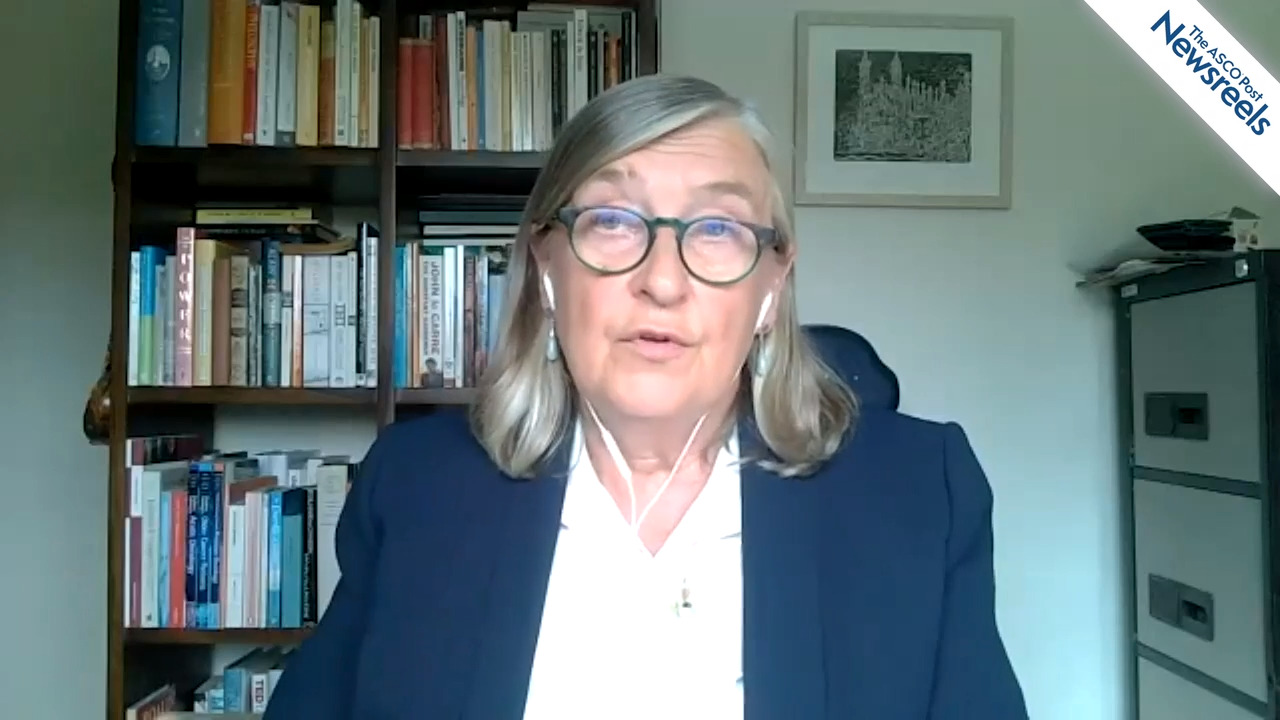Toni K. Choueiri, MD, on Renal Cell Carcinoma: Quality-of-Life Data From KEYNOTE-564 on Pembrolizumab vs Placebo
ESMO Congress 2021
Toni K. Choueiri, MD, of Dana-Farber Cancer Institute, discusses patient-reported outcomes for quality of life in the KEYNOTE-564 study, which previously met its primary endpoint of disease-free survival with adjuvant pembrolizumab vs placebo following surgery for renal cell carcinoma (Abstract 653O).
The ASCO Post Staff
Naveen S. Vasudev, PhD, MBChB, of the University of Leeds, discusses phase II results from the PRISM trial, which showed that giving ipilimumab every 12 weeks instead of every 3 weeks, in combination with nivolumab, led to lower rates of grade 3 and 4 toxicities in patients with advanced renal cell carcinoma. Efficacy appeared to be comparable between both arms (Abstract LBA29).
The ASCO Post Staff
Helena M. Earl, MBBS, PhD, of the University of Cambridge, discusses an individual patient data meta-analysis of noninferiority randomized clinical trials to determine whether a duration of less than the standard of 12 months of adjuvant trastuzumab is noninferior for treatment outcomes in patients with HER2-positive early breast cancer (Abstract LBA11).
The ASCO Post Staff
Robin Cornelissen, MD, PhD, of Erasmus University in Rotterdam, discusses phase II findings from the ZENITH20-4 study, which explored the question of whether poziotinib could benefit patients whose newly diagnosed non–small cell lung cancer harbors EGFR and HER2 exon 20 mutations. Potentially, this novel tyrosine kinase inhibitor may fill an unmet medical need (Abstract LBA46).
The ASCO Post Staff
Susana N. Banerjee, MBBS, PhD, of The Royal Marsden NHS Foundation Trust, discusses phase II results of the EORTC-1508 trial, the first study to combine an anti–PD-L1 antibody, atezolizumab, with bevacizumab and the COX1/2 inhibitor acetylsalicylic acid as treatment for patients with ovarian, fallopian tube, or primary peritoneal adenocarcinoma (Abstract LBA32).
The ASCO Post Staff
Joseph M. Unger, PhD, of Fred Hutchinson Cancer Research Center, discusses findings from his study of the National Cancer Institute’s Clinical Trials Network, which has conducted publicly funded cancer research for more than 50 years. The substantial gains in life years for patients with cancer, he says, supports the critical role of government-sponsored cancer research (Abstract 1503O).





